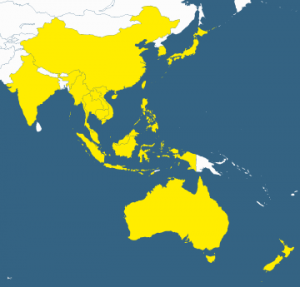The third round of negotiations of the Regional Comprehensive Economic Partnership (RCEP) are underway this week in Kuala Lumpur. RCEP is a proposed trade agreement involving the ten ASEAN member states and six additional countries that have standing trade agreements with them: Australia, Brunei Darussalam, Cambodia, China, India, Indonesia, Japan, Korea, Lao PDR, Malaysia, Myanmar, New Zealand, Philippines, Singapore, Thailand, and Vietnam.
The Jiji Press reports that “the Japanese government is expected to ask other countries to convene specialized task forces for intellectual property right protections and other domains and to call for the start of full-blown talks on these areas.”
The agreement’s Guiding Principles and Objectives – agreed upon in 2012 – state that “The text on intellectual property in the RCEP will aim to reduce IP-related barriers to trade and investment by promoting economic integration and cooperation in the utilization, protection and enforcement of intellectual property rights.” However, they also instruct negotiators to will give flexibilities to developing countries as appropriate: “Taking into consideration “the different levels of development of the participating countries, the RCEP will include appropriate forms of flexibility including provision for special and differential treatment, plus additional flexibility to the least-developed ASEAN Member States.”





